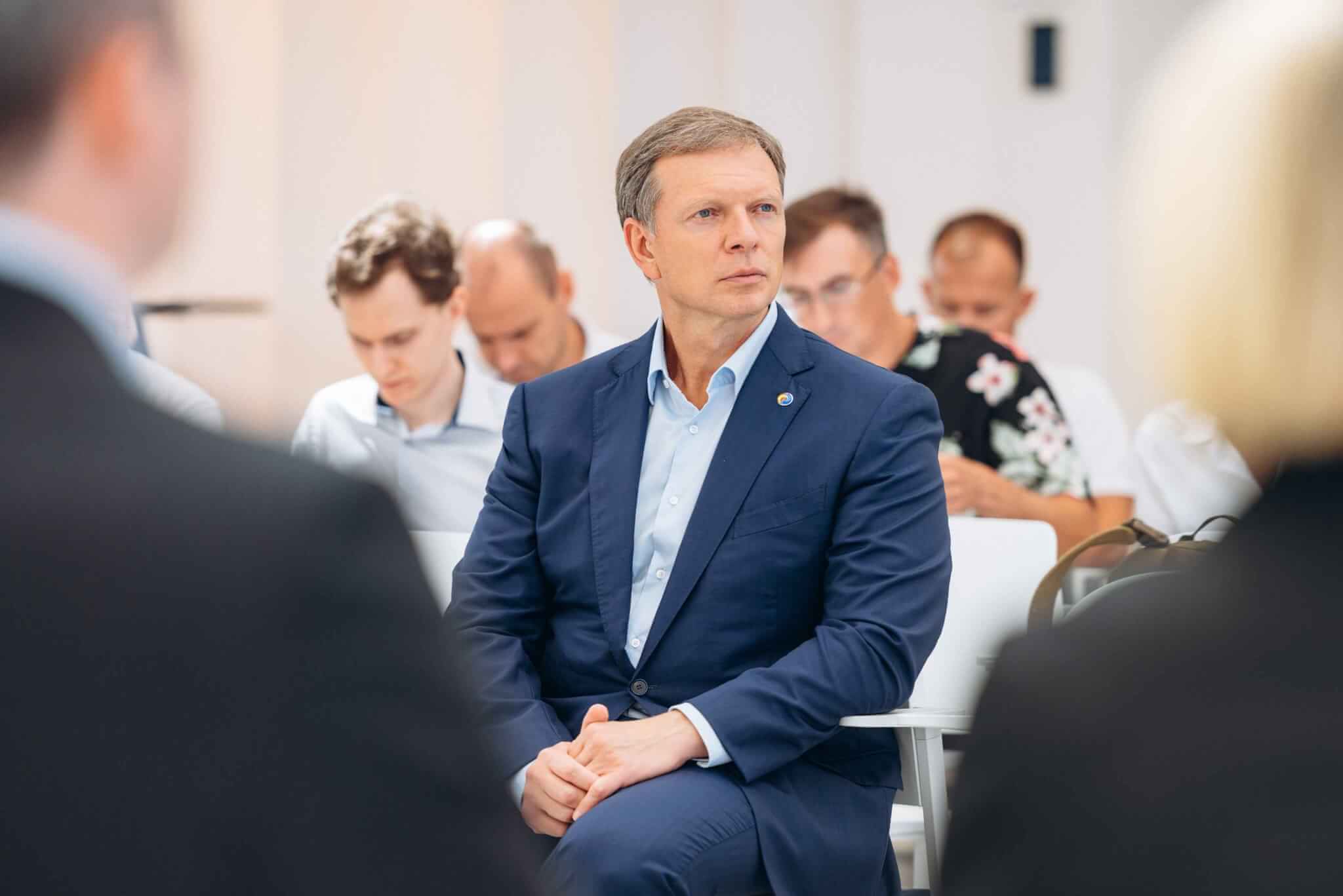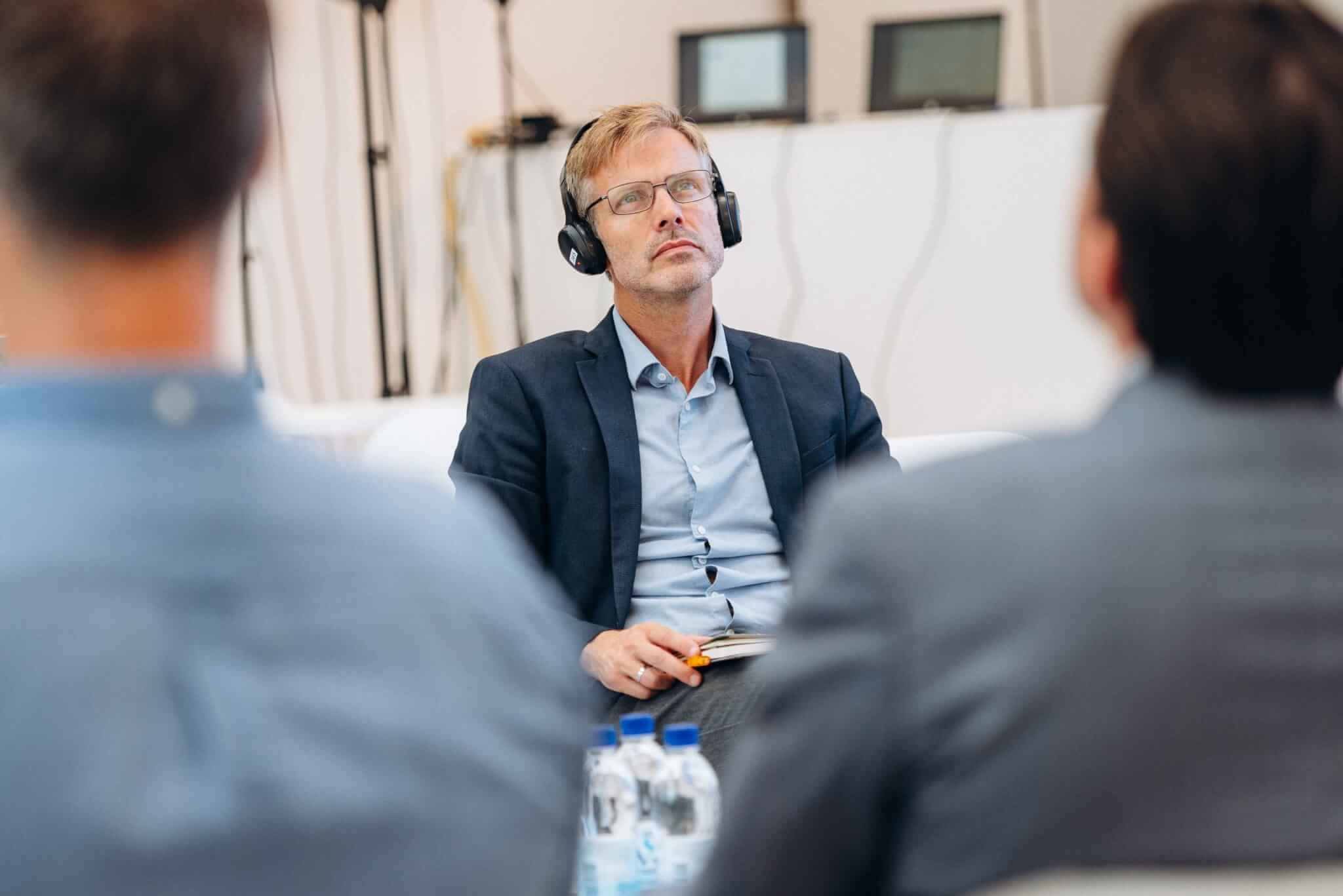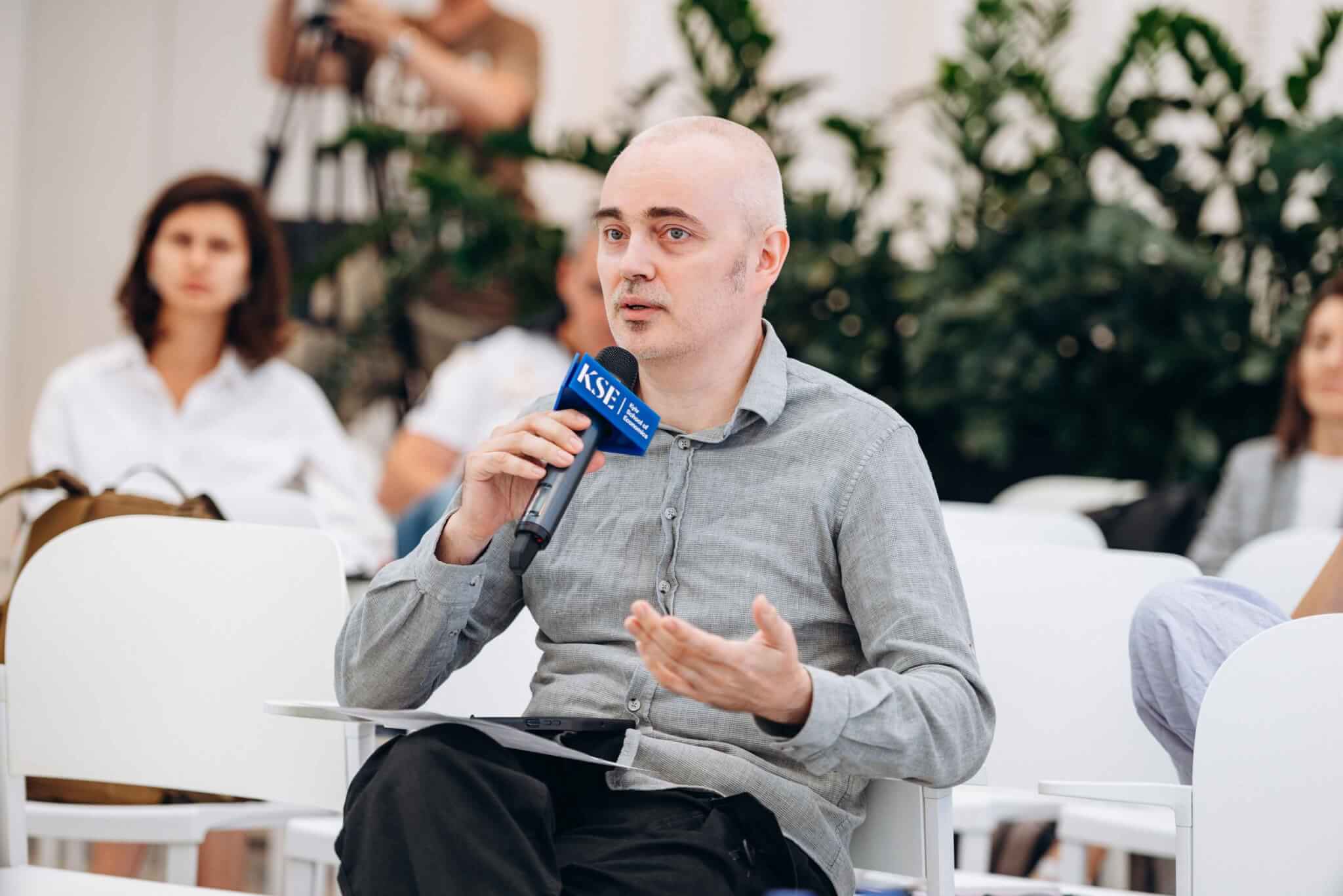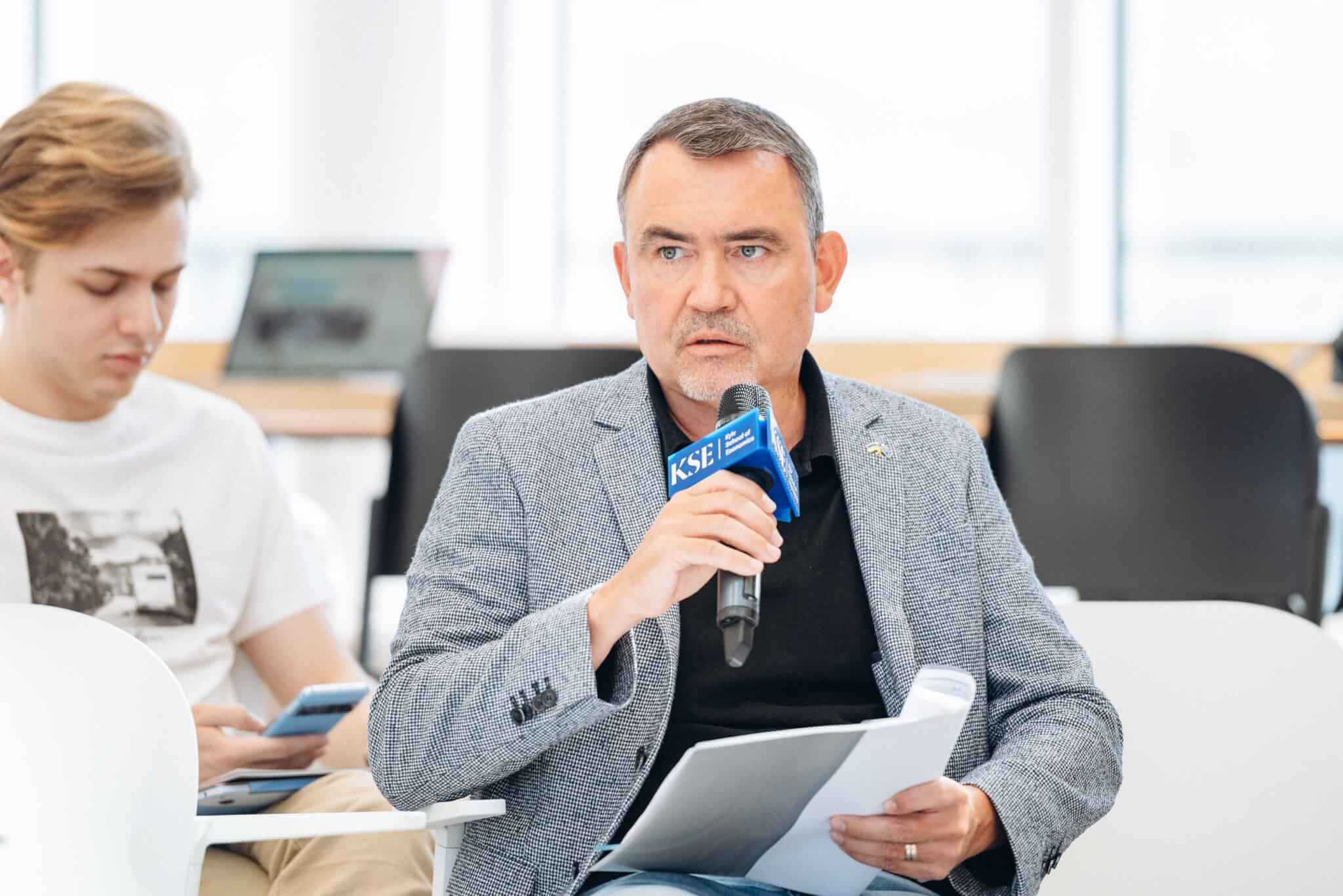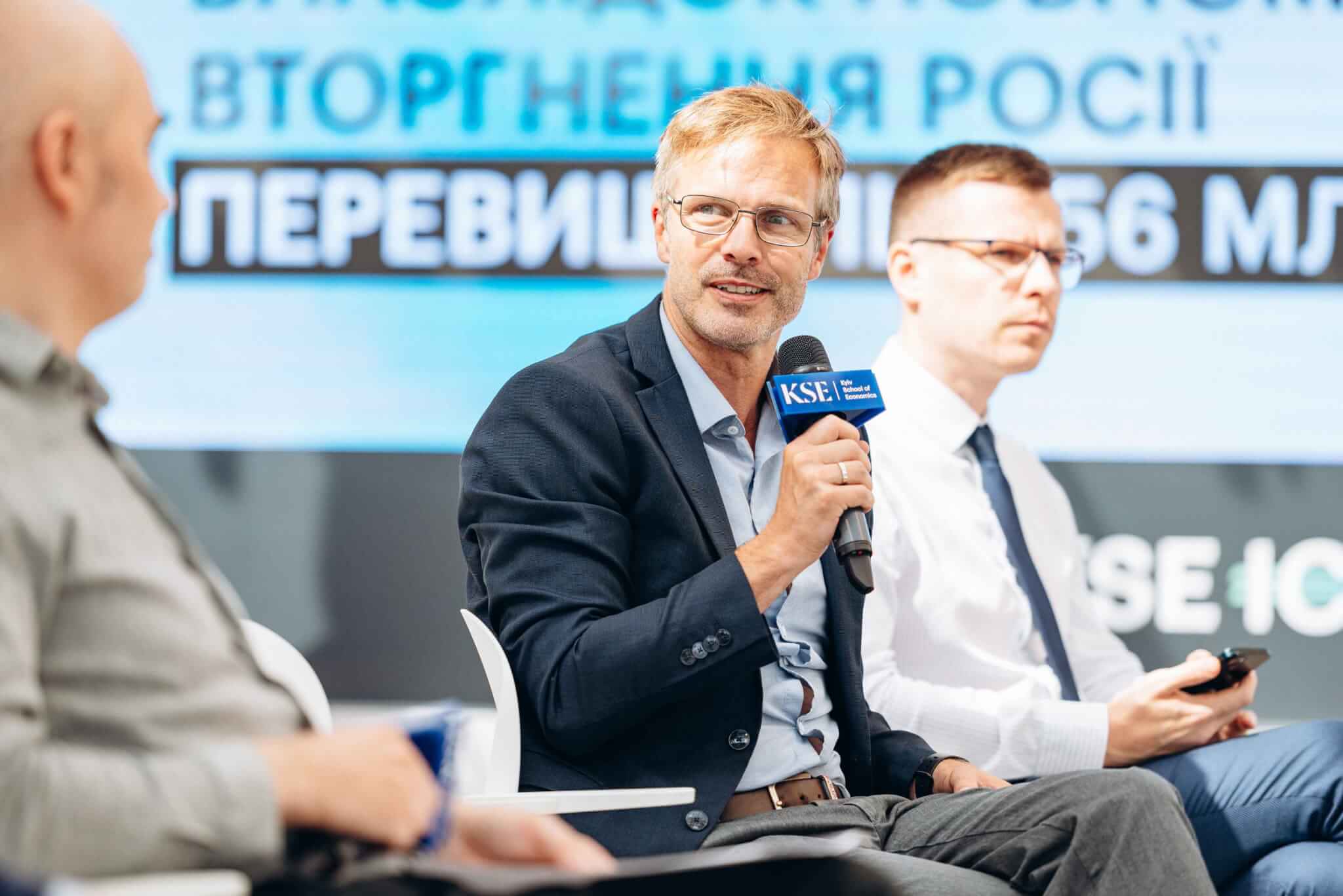- Kyiv School of Economics
- About the School
- News
- KSE presents a study on damages to Ukraine’s energy sector with the participation of major Ukrainian energy companies
KSE presents a study on damages to Ukraine’s energy sector with the participation of major Ukrainian energy companies
19 August 2024
The Kyiv School of Economics hosted a public presentation of a study assessing the damages and losses to Ukraine’s energy sector caused by Russia’s full-scale invasion. The event convened representatives from the largest state-owned energy companies to discuss the study’s findings and the necessary steps for rebuilding the sector.
According to KSE estimates, total damages to Ukraine’s energy sector exceed $56 billion, including $16 billion in direct physical destruction and over $40 billion in indirect financial losses. A complete restoration of the energy sector under the “Build Back Better” principle will require $50.5 billion.
The participants in the discussion were Volodymyr Kudrytskyi, Chairman of the Management Board of the National Power Company “Ukrenergo”; Oleksiy Chernyshov, Chairman of the Board and CEO of Naftogaz Ukraine; Bohdan Sukhetskyi, Deputy CEO for Commercial Activities at Ukrhydroenergo; Jakob Hartmut, Acting Member of the Board of JSC «NNEGC «Energoatom»; Oleksandr Kharchenko, Director of the Energy Industry Research Center; Dmytro Sakharuk, Executive Director of DTEK; Nataliia Shapoval, Head of the KSE Institute; Dmytro Goriunov, Head of the Group for assessing Ukraine’s damages from the war at KSE Institute; and Ihor Piddubny, Senior Analyst at KSE Institute and co-author of the study.
In her opening remarks, Nataliia Shapoval, Head of KSE Institute, emphasized the importance of continuing damage assessments and maintaining international dialogue to secure funding for Ukrainian companies.
“At the beginning of the year, total economic losses reached $157 billion, and losses of energy infrastructure amounted to $8 billion, which doubled to $16 billion by June. Russia is systematically attacking the energy sector, which poses serious risks to the economy and society. Therefore, it is crucial to continue the dialogue with partners, the government and international financial institutions to attract financing for both public and private companies, which is critically needed to restore energy capacity and ensure electricity supply for households and businesses. Effective communication of this information on international platforms is also key to the energy sector’s recovery,” said Nataliia Shapoval.
Volodymyr Kudrytskyi, Chairman of the Management Board of the National Power Company “Ukrenergo,” noted that damage assessments are important for understanding the scale of the problems and practical purposes, such as filing compensation claims.
“Companies like Ukrenergo and Naftogaz have been engaged in legal proceedings against Russia for many years over assets that were illegally seized. It is essential that damage assessments are as accurate as possible and based on facts, as these figures will form the basis for legal claims and arbitrations,” he said. Kudrytskyi also emphasized that billions of dollars in investment are required to fully restore the power plants, which is critical for the country’s reconstruction.
Oleksiy Chernyshov, Chairman of the Board and CEO of Naftogaz of Ukraine, emphasized the need to liberalize the energy market and resume gas exports to ensure Ukraine’s economic growth.
“The future of Ukraine depends on the ability to attract investment into the energy sector. The key condition for this is the liberalization of the energy market, which will provide a positive impetus for system development,” he noted. Chernyshov also added that active efforts are needed to resume gas exports, which will be a crucial step for economic growth.
Jakob Hartmut, Acting Member of the Board of JSC «NNEGC «Energoatom,» shared information about the significant losses caused by the occupation and damage to the Zaporizhzhia Nuclear Power Plant, which resulted in losses of about UAH 243 billion in electricity production. He also stressed the importance of international cooperation in finding effective mechanisms to compensate for these losses.
Ole Solvang, Representative of the UN Human Rights Monitoring Mission in Ukraine, emphasized the significant impact of the attacks on civilians.
“Attacks on the energy infrastructure have serious consequences for the civilian population, including limited access to essential services such as heating, water, and education. This is particularly true for children, who may be left without the opportunity to study, and vulnerable groups, who become even more dependent on aid. We continue our work documenting these impacts, reporting on them, and doing everything possible to ensure that the international community is aware not only of the economic consequences but also of the impact on civilian lives,” said Ole Solvang.
Bohdan Sukhetskyi, Deputy CEO for Commercial Activities at Ukrhydroenergo, pointed out the challenges faced by state-owned companies in restoring the energy infrastructure during the war.
“We have been subjected to 120 missile strikes on our facilities, and all our facilities have been attacked. We continue to work on restoration and strengthening protection, making our units more autonomous and independent of each other,” Mr. Sukhetskyi emphasized.
The representative of Ukrhydroenergo also highlighted the significant financial burden imposed on companies by fulfilling Public Service Obligations (PSO) for supplying energy at preferential rates, which affects their ability to finance restoration.
The participants’ overall conclusion was the urgent need to continue joint efforts to rebuild Ukraine’s energy sector. They emphasized the importance of attracting international investment and implementing innovative technologies, which will restore the destroyed infrastructure and create a more resilient and efficient energy system.
According to the Kyiv School of Economics, as of January 1, 2024, the total amount of infrastructure damage caused to Ukraine by the Russian invasion exceeds $157 billion.





